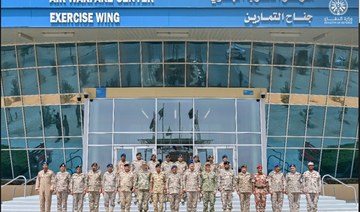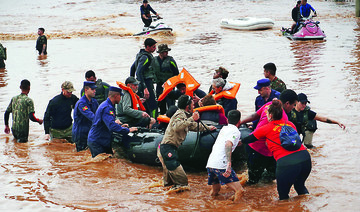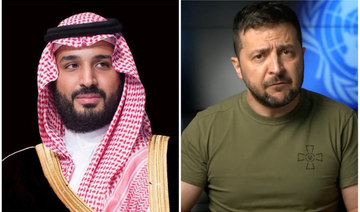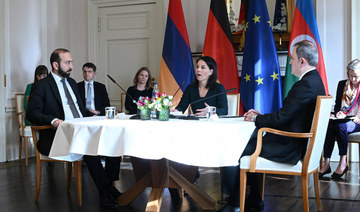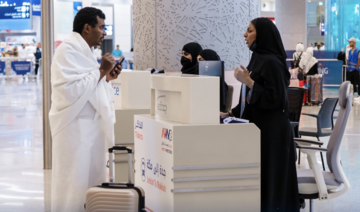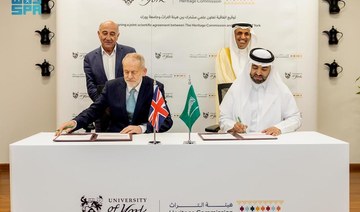WASHINGTON: The Trump administration announced criminal charges and sanctions Friday against Iranians accused in a government-sponsored hacking scheme to pilfer sensitive information from hundreds of universities, private companies and American government agencies.
The nine defendants, accused of working at the behest of the Iranian government-tied Islamic Revolutionary Guard Corps, hacked the computer systems of about 320 universities in the United States and abroad to steal expensive science and engineering research that was then used or sold for profit, prosecutors said.
The hackers also are accused of breaking into the networks of dozens of government organizations, such as the Department of Labor, the United Nations and Federal Energy Regulatory Commission, and companies including law firms and biotechnology corporations.
The Justice Department said the hackers were affiliated with an Iranian company called the Mabna Institute, which prosecutors say contracted since at least 2013 with the Iranian government to steal scientific research from other countries.
“By bringing these criminal charges, we reinforce the norm that most of the civilized world accepts: nation-states should not steal intellectual property for the purpose of giving domestic industries an advantage,” Deputy Attorney General Rod Rosenstein said in announcing the charges.
Also Friday, the Treasury Department targeted the Mabna Institute and 10 Iranians — the nine defendants and one charged in a separate case last year — for sanctions that will bar them from doing business in the United States.
The defendants are unlikely to ever be prosecuted in an American courtroom since there’s no extradition treaty with Iran. But the grand jury indictment — filed in federal court in Manhattan — is part of the government’s “name and shame” strategy to publicly identify foreign hackers, block them from traveling without risk of arrest and put their countries on notice.
The strategy has been employed with past indictments accusing Iranian hackers of a digital break-in of a New York dam, Chinese military officials of large-scale hacks at energy corporations and Russians of a massive breach of Yahoo user accounts.
“People travel. They take vacations, they make plans with their families,” said FBI Deputy Director David Bowdich. “Having your name, face and description on a ‘wanted’ poster makes moving freely much more difficult.”
According to the indictment, the Iranians broke into universities through relatively simple, but common means — tricking professors to click on compromised links. The spear-phishing emails purported to be from professors at one university to those at another and contained what appeared to be authentic article links.
But once clicked on, the links steered the professors to a malicious Internet domain that led them to believe they had been logged out of their systems and asked them to enter their log-in. The credentials were then logged and stolen by the hackers, prosecutors say.
From there, according to the Justice Department, the hackers stole roughly 15 billion pages of academic research and intellectual property that was then sent outside the United States for profit.
More than 100,000 professors worldwide were targeted with spear-phishing emails, and the information that was stolen cost US universities about $3.4 billion to procure and access.
“Just in case you’re wondering, they’re not admiring our work,” Bowdich said. “They’re stealing it, and they’re taking credit for it, and they’re selling it to others.”
US charges 9 Iranians in massive hacking scheme
US charges 9 Iranians in massive hacking scheme

Biden says bombs US has paused sending to Israel have killed civilians

US President Joe Biden said on Wednesday that bombs the United States has supplied to Israel and has now paused sending in its war against Hamas have been used to kill Palestinian civilians.
“Civilians have been killed in Gaza as a consequence of those bombs and other ways in which they go after population centers,” he said in an interview with CNN, when asked about 2,000-pound bombs sent to Israel.
Saudi Armed Forces participate in military exercise in Turkiye
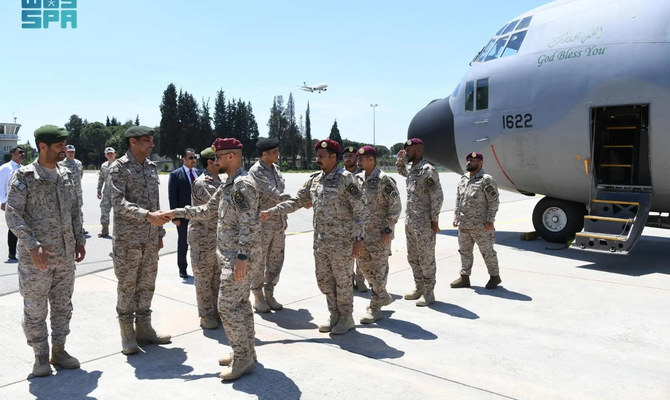
- The field exercise phase of EFES 2024, which begins on Friday and continues until May 30, follows a command center phase that began on April 25 and ended on Wednesday
RIYADH: The Saudi Arabian Armed Forces are taking part in a multinational military exercise in the Turkish city of Izmir, the Kingdom’s Defense Ministry said on Wednesday.
Upon arrival in Turkiye ahead of the field-exercise phase of EFES 2024, the Saudi units were greeted by the military attache at the Saudi embassy in Ankara, Commodore Adel Al-Kalthami, the director of the exercise from the Kingdom, Brig. Gen. Nasser Al-Suhaimi, and officers from branches of the Armed Forces.
The exercise involves two main phases, the first of which was a command-center exercise at the Multinational War Center in Istanbul and the Joint Command Training Center in Izmir, which began on April 25 and concluded on Wednesday. The second phase, involving live-firing field exercises at Izmir’s Doganbey Firing and Exercise Area, begins on Friday and continues until May 30.
The head of the Saudi Armed Forces Education and Training Authority, Maj. Gen. Adel Al-Balawi, said participation of the nation’s forces in the exercise reflects the care and support of the Saudi leadership for the development of their capabilities and the enhancement their organizational, training and armaments skills.
The exercise provides an opportunity for forces from participating nations to exchange skills, train together in the planning and coordination of joint operations in various environments, raise their combat efficiency, and enhance military cooperation, he added.
During the exercise the Saudi units and their counterparts from other countries will carry out many field maneuvers on land and sea, including sea-landing operations, search and rescue missions, and responses to threats posed by drones, using light arms loaded with live ammunition and other weaponry, Al-Balawi said.
Saudi king, crown prince offer condolences to Brazilian president over flood victims
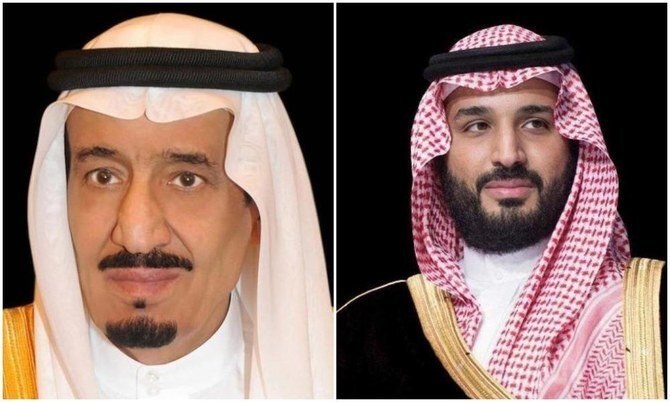
RIYADH: Saudi Arabia’s King Salman sent a message of condolences and sympathy to Brazilain President Luiz Inacio Lula da Silva, following the floods that swept the state of Rio Grande do Sul that killed and injured several people and left a number missing, the Saudi Press Agency reported on Wednesday.
“We learned of the news of the floods that swept through the state of Rio Grande do Sul, south of the Federal Republic of Brazil, and the resulting deaths, injuries, and missing persons,” the king said.
He added: “We share Your Excellency’s pain of this tragedy, and we send to you, to the families of the deceased, and to your friendly people, our warmest condolences and sincere sympathy, wishing that the missing will return safely and the injured a speedy recovery.”
Crown Prince Mohammed bin Salman also sent a similar cable to the Brazilian president.
Heavy rains and flooding in the southern state of Rio Grande do Sul since last week also have left 128 people missing, authorities said. More than 230,000 have been displaced, and much of the region has been isolated by the floodwaters.
(With AP)
Armenia’s prime minister in Russia for talks amid strain in ties
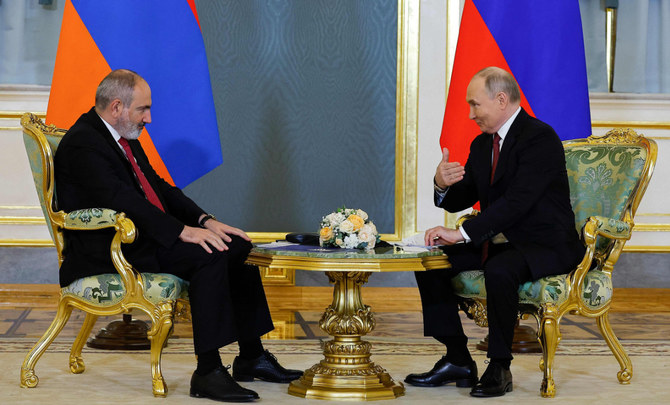
- Putin hosted Nikol Pashinyan for talks following a summit of the Eurasian Economic Union, a Moscow-dominated economic alliance
- Armenia’s ties with its longtime sponsor and ally Russia have grown increasingly strained after Azerbaijan waged a lightning military campaign in September to reclaim the Karabakh region
MOSCOW: Armenia’s prime minister visited Moscow and held talks Wednesday with Russian President Vladimir Putin amid spiraling tensions between the estranged allies.
Putin hosted Nikol Pashinyan for talks following a summit of the Eurasian Economic Union, a Moscow-dominated economic alliance. that they both attended earlier in the day. The negotiations came a day after Putin began his fifth term at a glittering Kremlin inauguration.
In brief remarks at the start of the talks, Putin said that bilateral trade was growing, but acknowledged “some issues concerning security in the region.”
Pashinyan, who last visited Moscow in December, said that “certain issues have piled up since then.”
Armenia’s ties with its longtime sponsor and ally Russia have grown increasingly strained after Azerbaijan waged a lightning military campaign in September to reclaim the Karabakh region, ending three decades of ethnic Armenian separatists’ rule there.
Armenian authorities accused Russian peacekeepers who were deployed to Nagorno-Karabakh after the previous round of hostilities in 2020 of failing to stop Azerbaijan’s onslaught. Moscow, which has a military base in Armenia, has rejected the accusations, arguing that its troops didn’t have a mandate to intervene.
The Kremlin, in turn, has been angered by Pashinyan’s efforts to deepen ties with the West and distance his country from Moscow-dominated security and economic alliances.
Just as Pashinyan was visiting Moscow on Wednesday, Armenia’s Foreign Ministry announced that the country will stop paying fees to the Collective Security Treaty Organization, a Russia-dominated security pact. Armenia has previously suspended its participation in the grouping as Pashinyan has sought to bolster ties with the European Union and NATO.
Russia was also vexed by Armenia’s decision to join the International Criminal Court, which last year indicted Putin for alleged war crimes connected to the Russian action in Ukraine.
Moscow, busy with the Ukrainian conflict that has dragged into a third year, has publicly voiced concern about Yerevan’s westward shift but sought to downplay the differences.
Kremlin spokesman Dmitry Peskov conceded Tuesday that “there are certain problems in our bilateral relations,” but added that “there is a political will to continue the dialogue.”
Saudi crown prince, Ukrainian president discuss Russia-Ukraine conflict during call
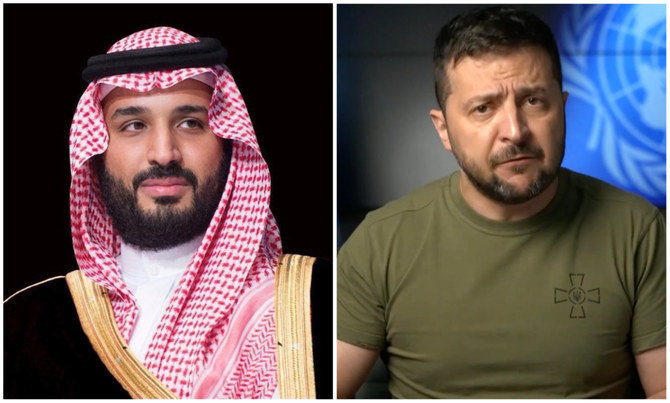
RIYADH: Saudi Arabia’s Crown Prince Mohammed bin Salman on Tuesday received a phone call from Ukranian President Volodymyr Zelensky, the Saudi Press Agency reported.
During the call, they reviewed bilateral relations between the two countries and discussed several issues of common interest.
They also discussed developments in the Ukrainian-Russian crisis and efforts to resolve the conflict.



